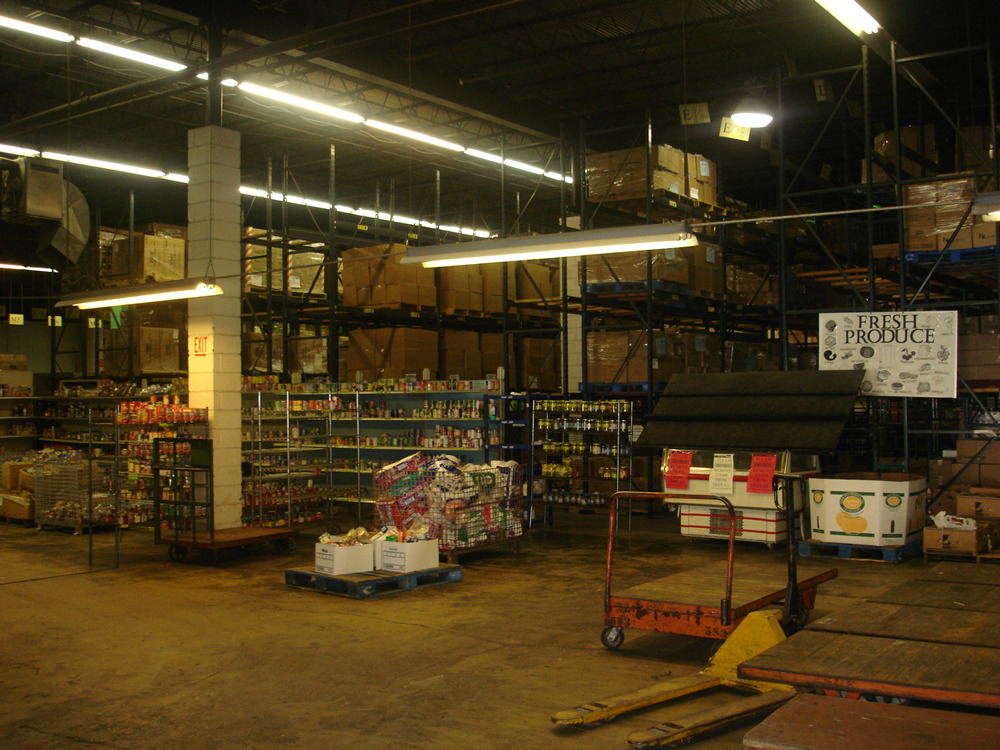Food pantries in Colorado are preparing for a “long haul” of food insecurity across the state and the nation.
According to Hunger Free Colorado, a non-profit that fights against hunger in the state, 38 percent of Coloradans “are food insecure, meaning they lack reliable access to nutritious food, with people of color and households with children facing even higher levels of hunger.”
That high level of food insecurity is expected to stick around for quite a while, meaning that in addition to volunteers and financial donations, food pantries in Denver also want to see policy changes to both support food pantries and combat systemic poverty.
Demand has increased dramatically since the onset of the pandemic
Metro Caring, a Denver food pantry self-described as “Colorado’s leading frontline anti-hunger organization,” has seen a whopping “300% increase in demand for emergency food,” CEO Teva Sienicki told the Colorado Times Recorder.
“We have seen a lot of folks who are laid off or who are furloughed or who have schedule reductions, in addition to small business owners whose businesses either are struggling or have gone under,” she said.
Sienicki said that Metro Caring had to “pivot overnight” when the pandemic came to town, shifting their Fresh Foods Market, which normally mimics a grocery store, to a COVID-safe alternative. The high demand coupled with other technical issues has resulted in high expenses.
“We’ve been spending every three to four weeks what we spent all of the previous year on food,” said Sienicki, “because this has all been coupled with supply chain issues, and the costs have gone up, and food waste has gone down because people are shopping online.”
The non-profit human services agency Jewish Family Service in Denver, which operates the Weinberg Food Pantry, has seen a similar increase in demand at their location.
“Over the last year, Jewish Family Service Weinberg Food Pantry has seen a steady increase in need,” JFS Communications Director Jenny Herren told the Colorado Times Recorder. “Pre-COVID, JFS served an average of 40 households a day, that number has increased to about 150.”
Food pantries expect a “long haul”
The 2008 recession may feel like a long time ago, but its impacts on hunger in America were long-lasting. Sienicki says that 2019 was the first year that hunger had reached pre-recession levels, which could indicate another long haul to come from this economic crisis.
“…We’re anticipating this level of demand to remain high the next couple of years as a minimum,” said Sienicki. “What we know is that 2019 is the first year that we went back to pre-recession levels from the ’08-’09 recession for food insecurity rates in this country. And so we’re thinking that we’re in for a long haul of increased demand as eviction moratoriums come to an end, as creditors start calling in on their debts…”
Donations, volunteering, and government support of food pantries are important…
Herren asks that people looking to help fight hunger in the Denver community make donations to the Weinberg Food Pantry.
“The best way to support the food pantry is to donate money because we can purchase food at wholesale or lower costs,” said Herren. “Food items can also be donated at the main office at 3201 South Tamarac Drive, Denver, CO 80231, Tuesdays and Wednesdays, from 2:00 p.m. to 3:30 p.m.”
Shelly Hines, Director of Community Resources for Stability at JFS, advocates for continued government support for food pantries in Colorado.
“The economic crisis we are in right now will continue for quite a while and we need to continue to make sure that people have access to food,” said Hines. “We want to ask the state to continue funding the Colorado Food Pantry Assistance Grant Program. Food pantries are providing food to families in need all over the state at hugely increased volumes and we need that extra support to relieve some of the financial burden.”
…But so are long-term solutions to poverty
Sienicki points out that so many people’s quick plummet into food insecurity after the start of the pandemic can be attributed to systemic poverty, including having an unlivable minimum wage, which she says is a “number one policy change.”
“There were a lot of families that were vulnerable to this turn in our economy despite working full-time or more because they weren’t earning a livable wage,” said Sienicki. “We know that 40 percent of households in this country did not have more than a month’s savings going into this.”
She also wants to see an “inclusive economy” through voting and policy changes that’s made for everyone, which is the goal of a group of community members at Metro Caring.
“We need help in terms of thinking of the policy landscape and thinking of the economy and the state and the community we want to build together,” Sienicki said. “Voting in ways, and working for policy changes in ways that are going to build a more inclusive economy.”
She also invites employers who are part of the community to begin fighting hunger by paying their employees a livable wage.
“When I talk to corporate groups, you know, they will often ask, ‘can we come and volunteer?’ and I say, ‘sure, you can come and volunteer, you can donate, all of those things help,” said Sienicki. “But the biggest thing you can do is to think about your employee base and your contractors–how much is the lowest person on your team earning? And is it a livable wage? How much are you paying your contractors? How much are you paying the people who come in and clean your office at night?’ And I think that if we can start to baseline there, I think that then shortens the line for places like Metro Caring.”
Click here for more food pantries in the Denver area to support.




